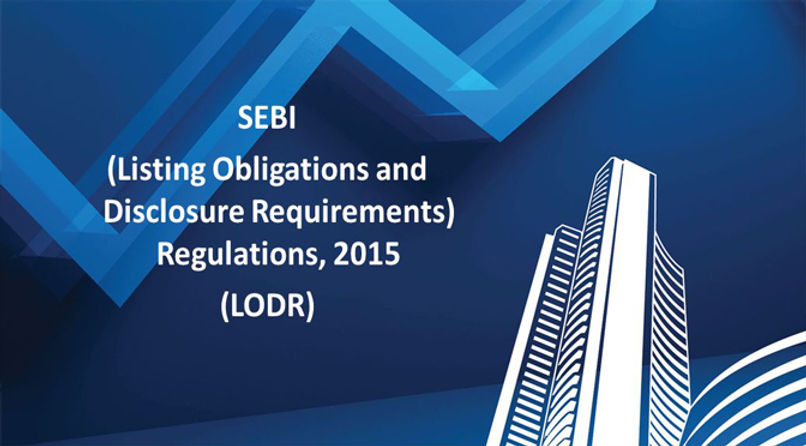SEBI Circular 2024: Key Amendments for Financial Disclosures, Secretarial Audits, and Governance Filings

Updated on: Jan 6th, 2025| 3 min read
Introduction
On December 31, 2024, the Securities and Exchange Board of India (SEBI) issued a crucial circular, SEBI/HO/CFD/CFD-PoD-2/CIR/P/2024/185, aimed at simplifying regulatory processes and enhancing ease of doing business for listed entities. The circular introduces several key amendments concerning financial disclosures, governance filings, and secretarial audits, along with updated timelines and a single filing system for entities listed on both the Bombay Stock Exchange (BSE) and the National Stock Exchange (NSE). Here’s a detailed look at the major changes and their implications:
1. Integrated Governance Filings for Listed Entities
The SEBI circular integrates several governance filings under updated timelines. These filings include:
- Investor Grievance Statement (Reg 13(3)): Must now be filed within 30 days from the end of each quarter.
- Corporate Governance Compliance Report (Reg 27(2)(a)): Due within 30 days from the end of each quarter.
For Q4 2024, the first integrated governance filing must be submitted within 45 days, with subsequent filings due within 30 days after each quarter ends.
Additionally, listed entities are required to disclose:
- Acquisition of shares/voting rights: Any change in shareholding above 5% or a subsequent change exceeding 2%.
- Minor fines and penalties: Disclose any penalties that fall below specified thresholds.
- Tax litigation updates: Provide quarterly updates on ongoing tax disputes.
These updates streamline the process and help ensure greater transparency in corporate governance.
2. Integrated Financial Filings for Regulatory Compliance
SEBI’s circular also integrates several financial filings under updated regulations:
- Related Party Transactions (Reg 23(9)): These filings are now required half-yearly.
- Outstanding Defaults on Loans or Debt Securities (Reg 30): To be filed quarterly.
- Statement of Deviation (Reg 32(1)): Quarterly filing of deviation statements is now mandatory.
- Quarterly Financial Results (Reg 33(3)): To be filed within 45 to 60 days from the end of the quarter or fiscal year.
These changes aim to ensure timely and accurate financial reporting, allowing investors and stakeholders to make informed decisions.
3. Secretarial Auditor Guidelines
One of the key changes introduced in the circular is the redefined role of secretarial auditors:
- Appointment Process: Secretarial auditors must now obtain shareholder approval during the Annual General Meeting (AGM).
- Term of Appointment: Individual secretarial auditors can be appointed for 5 years, while a firm can serve for 2 consecutive terms of 5 years each.
Disqualifications for Secretarial Auditors:
- No body corporates (except LLPs) can be appointed as secretarial auditors.
- Secretarial auditors cannot be employees or officers of the listed entity or any group entity.
- Ownership limits: Secretarial auditors or their relatives cannot hold securities or interest in the entity exceeding ₹1 lakh.
Prohibited Services:
The circular specifies services that secretarial auditors cannot render, including:
- Internal audits
- Investment advisory services
- Compliance management and other similar services
These changes ensure the independence and objectivity of secretarial auditors.
4. Employee Benefit Scheme Disclosures
For employee benefit schemes, SEBI mandates that listed entities:
- Upload the scheme documents on their website after shareholder approval.
- Provide justification to the board on how the information impacts their competitive position or reveals commercial secrets.
The secretarial compliance report must include confirmation of compliance with these requirements.
5. Introduction of the Single Filing System for Listed Entities
Starting October 18, 2024, entities listed on both BSE and NSE will no longer need to submit duplicate filings to each exchange. With the single filing system, listed entities can file disclosures on one exchange, and this will be applicable to both platforms. This change reduces administrative overhead and enhances operational efficiency.
6. System-Driven Disclosures
Certain disclosures will now be system-driven, further simplifying the compliance process:
- Shareholding Patterns (Reg 31(1)(b)): To be filed with regulatory authorities.
- Credit Rating Updates (Reg 30): New or updated credit ratings must be disclosed.
These system-driven disclosures aim to streamline regulatory processes and ensure that relevant information is easily accessible.
Conclusion: Impact of SEBI’s 2024 Amendments
The SEBI Circular SEBI/HO/CFD/CFD-PoD-2/CIR/P/2024/185 brings in comprehensive changes that aim to simplify regulatory filings for listed entities. By integrating governance and financial filings, introducing new timelines, and streamlining secretarial audit procedures, the circular enhances compliance efficiency while promoting greater transparency in the capital markets.
These amendments, including the single filing system and system-driven disclosures, will significantly reduce the compliance burden on entities and make the regulatory process more transparent and user-friendly.
For professional assistance with SEBI compliance or understanding how these changes apply to your organization, feel free to reach out to us.
If you found this article helpful, stay updated on the latest compliance regulations by following us or subscribing to our newsletter!
Let’s Connect!
Trusted By Your Favorite Brands






